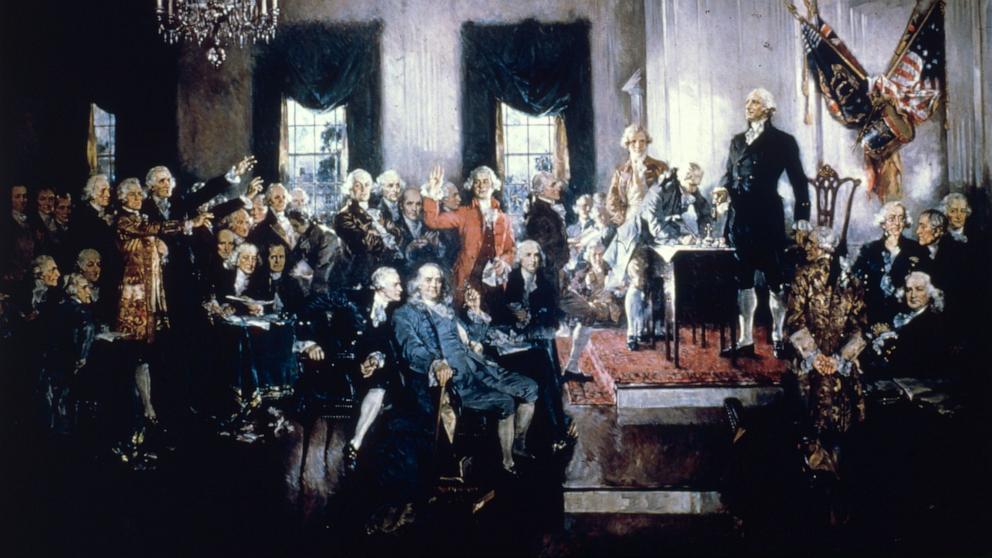The scholars submitted their arguments to the Supreme Court before it ruled on Trump's immunity.
Historians and legal experts have argued that the Supreme Court's decision that the president has immunity for “official business” goes against every principle the Founding Fathers advocated for when they wrote the Constitution.
Fifteen constitutional historians represented by the Brennan Center for Justice, a liberal nonprofit policy institute, filed an amicus brief with the Supreme Court in April challenging former President Donald Trump's argument that current and former presidents enjoy “absolute immunity” from criminal prosecution.
“Supporters of the new Constitution sought to assure the states' ratifying conventions that the new president would not be an elected king,” the report said.
Holly Brewer, an associate professor at the University of Maryland and lead author of the report, told ABC News that historical writings by key figures like Alexander Hamilton and James Madison, as well as the records of the states that ratified the Constitution, clearly show that they were opposed to a “new runaway monarchy” after suffering under the rule of Britain's King George III.
“That was surprising. There were a lot of issues the founders disagreed on, but this wasn't one of them,” she said.
Brewer said the Founding Fathers all looked back on history and held fast to the notion that “no one is above the law” to avoid repeating the same mistakes that led to absolute rule by a king they opposed.
“The Framers of the Constitution came to the Philadelphia Convention in 1787 determined not to recreate the British monarchy they had overthrown. They debated the appropriate balance of power between the executive and legislative branches, and the specific powers that would accompany each. But at no point did they seek to give the president the privilege of being an 'elected king,'” the summary states, citing James Madison's “Memorandum on a Constitutional Convention.”
Thomas Wolf, director of the Democracy Initiative at the Brennan Center and co-author of the report, told ABC News that the Founding Fathers' anti-monarchist ethos was so strong that even those who advocated for greater executive power, like Hamilton, maintained that the president could be prosecuted.
For example, Hamilton argued during the convention that elected officials should hold office for life, but only “while of good behavior,” and be subject to prosecution and removal.
When the Founding Fathers were debating congressional immunity, James Madison suggested making a similar argument for the president, but no one else was willing to take up the argument, Wolf said.
“He brought it to the floor and decided everyone should go home,” he said.
Wolf and Brewer said ratification of the Constitution by the states hinges on the idea that a president can be held accountable for abuses of power or crimes.
“In advocating ratification, the Founding Fathers sought to remind the ratifying convention that 'our President is not a king and our Senate is not a house of lords,'” the brief states, citing speeches to state conventions during the ratification process.
“The issue was raised at the state ratification conventions, and the states [the Constitution] It won't be another runaway monarchy,” Brewer said.
Justice Sonia Sotomayor also cited this idea in her dissent, arguing that the conservative majority's decision made the president “now a king above the law.”
“The Supreme Court has effectively created a lawless zone around the president, upending a status quo that has existed since the founding of our nation,” she wrote.
Wolf said the Supreme Court majority ignored basic and well-documented facts in the nation's history in its decision.
“The framers of the Constitution already considered granting criminal immunity and rejected it, concluding that an aggressive executive could still be subject to criminal prosecution,” he said.

